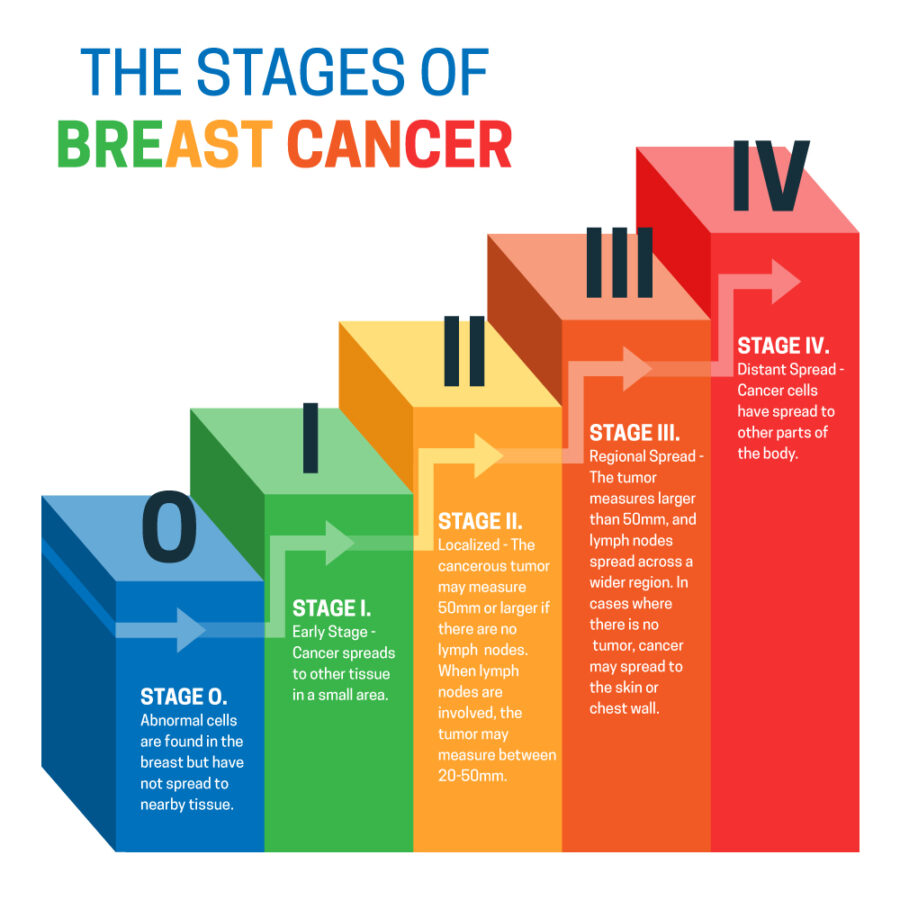19 Dec 2025
Age Specific Related to Psoriasis in Amritsar


Dr. Jatin Sarin
22 Jun 2025
Call +91 80788 80788 to request an appointment.
Breast cancer is one of the most prevalent forms of cancer impacting women globally. According to recent statistics, it accounts for nearly 25% of all cancer diagnoses among women. At Livasa Hospitals Mohali, we are dedicated to providing comprehensive care and advanced treatment for breast cancer at all stages. Understanding breast cancer stages is crucial in tailoring treatment and improving patient outcomes. Each stage represents a different level of cancer progression, influencing choice of treatment and prognosis.
In this blog, we will explore the stages of breast cancer, discuss symptoms, diagnostic tests, and the various treatment options available at Livasa Mohali. Our goal is to equip patients and their families with the knowledge they need to navigate the challenges posed by this disease.
Breast cancer staging is a critical part of understanding the disease. The stages aid in determining how far the cancer has spread and which treatment options will be most effective. Stages are primarily based on three main factors: tumor size (T), lymph node involvement (N), and metastasis (M). These factors are illustrated using the TNM system. Below is an overview of each stage:
Symptoms of breast cancer can vary significantly depending on the stage of the disease. Early detection is essential for successful outcomes, and being aware of potential signs is the first step. Each stage may present different manifestations:
Stage 0-1: At this stage, symptoms may be minimal, with many women experiencing no symptoms at all. Occasionally, a small, painless lump may be felt in the breast or underarm area. Regular screening, such as mammograms, is essential for early detection.
Stage 2: As the disease progresses, women may notice changes in the breast, including:
Stage 3: Symptoms may escalate and may include:
Stage 4: In advanced stages, symptoms can be severe and may include greater pain, fatigue, weight loss, and problems associated with metastasis such as bone pain or shortness of breath.
Timely diagnosis of breast cancer is paramount for effective treatment. At Livasa Hospitals Mohali, we use a variety of advanced diagnostic methods to detect breast cancer:
If diagnosed with breast cancer, patients will be promptly informed about their cancer stage, and together with the oncology team at Livasa Mohali, an individualized treatment plan will be constructed.
Treatment for breast cancer varies significantly based on the stage and type of cancer. At Livasa Hospitals Mohali, we offer an array of treatment modalities designed to cater to the unique needs of each patient. Below, we outline the major treatment options:
| Treatment Type | Description | Common Side Effects |
|---|---|---|
| Surgery | A surgical procedure to remove the tumor and possibly some of the surrounding tissue. Treatments may include lumpectomy or mastectomy. | Pain, swelling, scarring |
| Radiation Therapy | High-energy waves are used to kill or shrink cancer cells, typically used post-surgery. | Skin irritation, fatigue |
| Chemotherapy | Involves the use of drugs to kill cancer cells or stop them from growing, particularly for advanced stages. | Nausea, hair loss, fatigue |
| Hormone Therapy | Blocking hormones that promote cancer growth in hormone receptor-positive breast cancer. | Hot flashes, mood changes |
| Targeted Therapy | Specific agents designed to target cancer cells while causing less harm to normal cells. Common in HER2-positive cancers. | Rash, diarrhea |
The oncology experts at Livasa Mohali will work closely with patients to create a personalized treatment plan that considers their unique circumstances, preferences, and values.
We understand that a breast cancer diagnosis can be overwhelming. It's essential to focus on the overall well-being of the patient throughout their cancer journey. Livasa Hospitals Mohali offers a range of supportive care services, including:
Together with our medical staff, we strive to create a nurturing environment where patients feel safe and supported throughout their treatment journey.
Knowledge and awareness of breast cancer stages are vital in empowering patients with the tools necessary to make informed decisions about their health. At Livasa Hospitals Mohali, our dedicated team of cancer specialists is committed to providing tailored treatment plans utilizing the latest advancements in cancer care. Early detection, accurate diagnosis, and comprehensive treatment options collectively enhance the possibility of successful outcomes.
If you or a loved one is facing a breast cancer diagnosis, do not face it alone. Reach out to Livasa Mohali for support, education, and treatment that prioritizes your health. Book an appointment or call us at +91 80788 80788 to talk to our specialists about your concerns.
Early detection saves lives. Book an appointment at Livasa Hospitals Mohali today or talk to our specialists.
+91 80788 80788
Livasa Healthcare Group Corporate Office,Phase-8, Industrial Area, Sector 73, Sahibzada Ajit Singh Nagar, Punjab 160071
livasacare@livasahospitals.in
| Mohali | +91-99888 23456 |
| Amritsar | +91-99887 49494 |
| Hoshiarpur | +91-99883 35353 |
| Nawanshahr | +91-75081 82337 |
| Khanna | +91-98888 05394 |